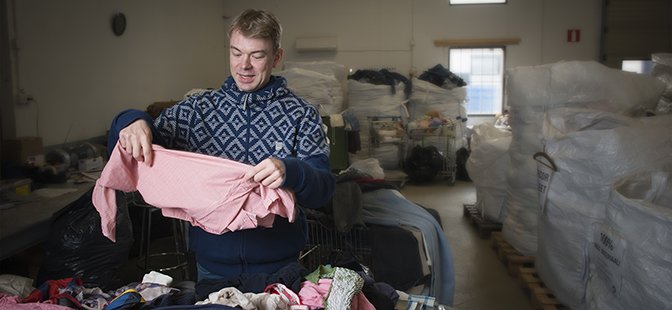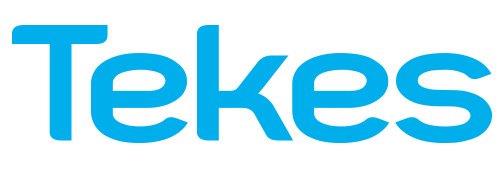
TELAKETJU Sorting and Recovery Chain for Textiles
The industrial utilization of discarted textiles calls for a large sorting and collection network for various fibers types from cotton to polyester. Companies wanting to join in to develop circular economy business models must also be discovered. The mission of the Telaketju (Caterpillar Track) initiative is to create an ecosystem of companies and other actors, which will raise the Finnish textile circular economy to a whole new level and build it up to a profitable business.
Diverse product demos utilizing fibers in various technological applications, such as plastic composites and non-woven products, will be produced during the initiative. The potential of using recycled textile fibers in different applications will also be researched.
The project plan includes evaluating the product safety of recycled textiles as well. During manufacture and use, dirt can accumulate to the textile, affecting its recoverability. In addition, special fabrics, such as materials with added flame retardants, must be identified before further treatment so they can be directed to products which benefit from flame retardant properties. IR spectrometry can already be used to recognize different fiber types, and the goal is to use the technology to also identify flame retardants as well as other substances affecting the utilization potential of the textiles.
The Telaketju initiative weaves together various actors and providers of funds. In addition to Tekes, the Ministry of the Environment as well as the participating companies and research organizations fund the project operations. During the project’s running time, the companies develop their businesses either through the development of material recycling, related technologies or commercial services.
In addition to the substantial funding from Tekes that is directed to the participating companies, the Telaketju initiative has also received financial support from the Ministry of the Environment. The Ministry funds a project coordinated by Lounais-Suomen Jätehuolto (Southwest Finland Waste Management Ltd), involving actors from municipal waste management, textile recycling and the charity sector.



